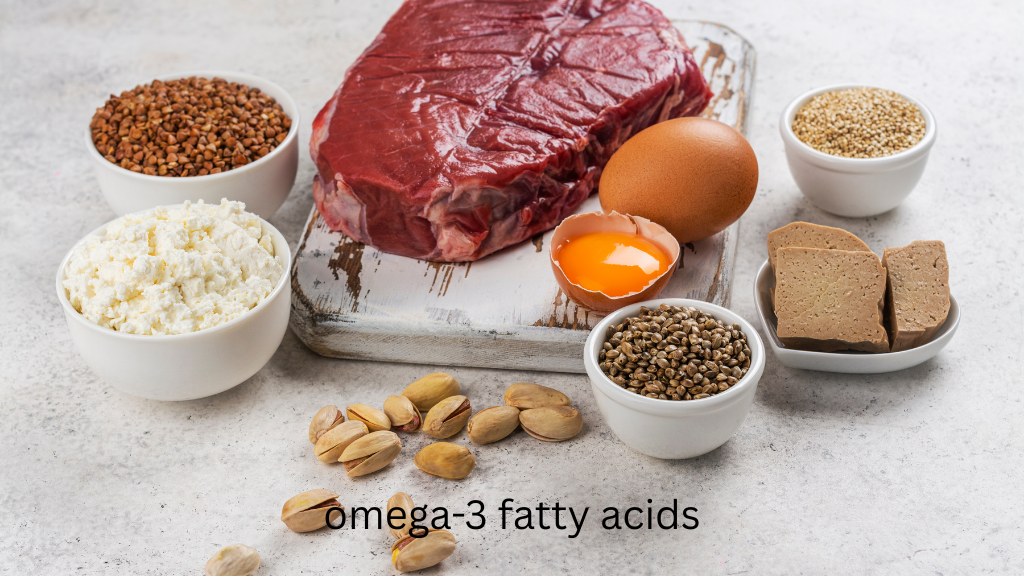Introduction
Have you ever wondered why we need to eat food every day?
It’s a question that might seem simple at first, but it opens up a world of fascinating insights into our biology, health, and even our social interactions.
To eat food is more than just satisfying hunger—it’s a biological necessity that fuels our lives.
Across the globe, everyone shares this fundamental need to eat food, but have you thought about what happens inside our bodies when we do?
From providing energy for our daily activities to supporting growth and maintaining health, eating food is crucial for our survival.
In this blog post, we will dive into the science behind our need for food, exploring energy supply, growth and repair, health benefits, and even the social aspects of eating.
Let’s discover the compelling reasons why consuming food is non-negotiable!

The Biological Necessity of Eating Food
Why Food Is the Body’s Fuel
At the core of why we need to eat food is the need for energy.
The human body requires calories to perform a multitude of functions each day.
These calories, obtained from food, are the energy currency that keeps us moving, thinking, and living.
Our bodies rely on three main macronutrients found in food: carbohydrates, proteins, and fats.
Carbohydrates are often the body’s first choice for immediate energy; they break down quickly to fuel our muscles and brain.
Proteins play a pivotal role not only in providing energy but also in building and repairing tissues.
Fats, while often misunderstood, are essential for long-term energy storage and help protect our organs.
When we eat food, we supply our bodies with essential nutrients that ensure vital functions continue seamlessly.
From keeping our hearts beating to allowing our brains to think clearly, food is indispensable.
When you’re feeling low on energy, those hunger signals—like a growling stomach—are your body’s way of reminding you.
That it’s time to eat food again to replenish your energy stores and keep your body functioning optimally.
Food for Growth and Repair
Building and Maintaining the Body
Food is instrumental in not just fueling our daily life but also in supporting our growth and repair processes.
For children, a nutritious diet is particularly important for proper development.
During growth spurts, certain nutrients, especially proteins, become critical.
For instance, proteins are vital for building muscles, skin, organs, and even hair.
In adults, the importance of eating food for ongoing cell regeneration and recovery cannot be understated.
After a workout, consuming protein-rich food helps repair muscle fibers, aiding recovery and making them stronger over time.

To eat food consistently ensures our bodies can grow and heal effectively, making it an essential part of maintaining our health at any age.
The Role of Food in Health and Disease Prevention
Food as Medicine
When we eat food, we are not just satisfying hunger or fueling our bodies; we are also investing in our health.
Micronutrients like vitamins and minerals play a crucial role in this regard.
For example, vitamin C supports our immune system while calcium is vital for strong bones.
Including a variety of colorful fruits and vegetables in our diets ensures we get these essential nutrients.
Eating a balanced diet rich in nutrients has been shown to reduce the risk of chronic diseases, such as heart disease and diabetes.
Moreover, a healthy gut is supported by the right food choices and gut microbiome, which aids digestion and strengthens our immunity.
When we eat food rich in nutrients, we fortify our body’s defenses, enabling it to fight off illnesses more effectively.
Psychological and Social Aspects of Eating Food
Beyond Survival: The Joy of Eating
While the biological aspects of food are undeniably important, we cannot overlook the psychological and social dimensions associated with eating food.
The impact of food on mental health is significant.
For example, omega-3 fatty acids, found in fatty fish, are known to support brain health and mood regulation.

Beyond nutrition, food serves as a glue that connects people, fostering community and culture.
Think about family dinners, cultural celebrations, or even simple gatherings with friends around a table.
These shared meals create bonds that strengthen relationships.
Moreover, the pleasure derived from enjoying a good meal highlights how eating food is also about celebrating life, culture, and connection.
Read More about Proper Food and Fitness: Your Guide to Healthy Living
What Happens If We Don’t Eat Food?
The Risks of Skipping Meals
The potential consequences of not eating food can be quite serious.
In the short term, skipping meals may lead to fatigue, irritability, and difficulty concentrating.
Over a longer period, the risks become even more severe.
Malnutrition can set in, characterized by a lack of essential nutrients that can lead to organ damage and weakened immunity.
In extreme cases, our bodies will start to prioritize survival by using fat reserves and, eventually, muscle.
If we stop eating food, our bodies cannot sustain basic functions for long.
Thus, understanding the importance of maintaining a regular eating schedule is vital for overall well-being.
Conclusion for Eating Food
In summary, the reasons we need to eat food span energy supply, growth, health, and social connections.
Eating food is a fundamental part of life that nourishes not just our bodies but also our minds and relationships.
By opting for nutrient-dense foods, we can enhance our health and happiness.
Next time you eat, think about the incredible ways food fuels your body and enriches your life.
To eat food is to invest in your health and happiness. What’s your favorite healthy meal? Share it in the comments!
